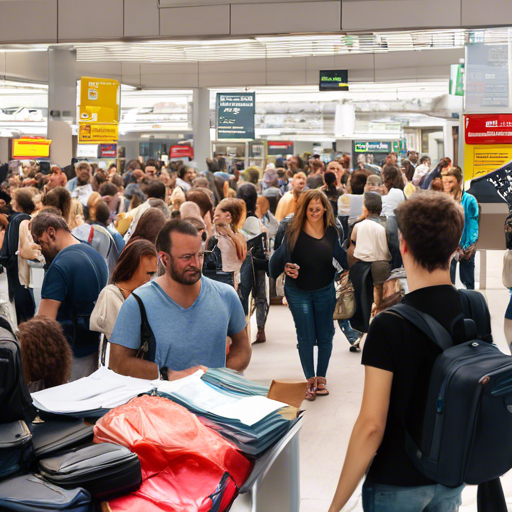navigating spanish customs: what to know before you go

Navigating Spanish Customs: What to Know Before You Go
Traveling to Spain can be an exhilarating experience, filled with rich culture, delectable cuisine, and stunning landscapes. However, understanding Spanish customs is crucial to ensure a smooth and enjoyable trip. In this article, we will delve into the essential customs and etiquette you need to know before embarking on your Spanish adventure.
Understanding Spanish Social Etiquette
Spain is known for its warm and welcoming people, but there are specific social norms that travelers should be aware of to avoid any faux pas. Let's explore some key aspects of Spanish social etiquette.
Greetings and Introductions
When meeting someone for the first time in Spain, it is customary to greet them with a handshake. Among friends and family, a kiss on each cheek is the norm. Here are some tips for greetings:
- Handshakes: Firm but not overly strong.
- Kisses: Start with the right cheek, then the left.
- Titles: Use titles such as Señor (Mr.), Señora (Mrs.), or Señorita (Miss) followed by the person's last name.
Dining Etiquette
Dining in Spain is a social affair, and there are several customs to keep in mind:
- Meal Times: Lunch is typically served between 2 PM and 4 PM, while dinner is usually eaten around 9 PM or later.
- Table Manners: Keep your hands visible on the table, but do not rest your elbows on it.
- Sharing: It is common to share dishes, especially tapas. Be sure to offer food to others before serving yourself.
Spanish Cultural Norms
Spain has a rich cultural heritage, and understanding its norms can enhance your travel experience. Let's look at some important cultural aspects.
Siesta Tradition
The siesta, a traditional afternoon nap, is still observed in many parts of Spain. This custom affects business hours and daily routines:
- Business Hours: Many shops and businesses close from 2 PM to 5 PM for siesta.
- Adaptation: Plan your activities around this break to avoid inconvenience.
Festivals and Celebrations
Spain is famous for its vibrant festivals, which are an integral part of its culture. Some notable festivals include:
- La Tomatina: A tomato-throwing festival held in Buñol.
- Running of the Bulls: Held in Pamplona during the San Fermín festival.
- Semana Santa: A week-long religious celebration leading up to Easter.
Practical Tips for Travelers
To make the most of your trip to Spain, consider these practical tips:
Language and Communication
While many Spaniards speak English, especially in tourist areas, learning a few basic Spanish phrases can go a long way:
- Greetings: Hola (Hello), Buenos días (Good morning), Buenas tardes (Good afternoon).
- Politeness: Por favor (Please), Gracias (Thank you), De nada (You're welcome).
- Directions: ¿Dónde está...? (Where is...?), ¿Cómo llego a...? (How do I get to...?).
Transportation
Spain has an extensive and efficient transportation system. Here are some options:
- Trains: Renfe operates high-speed trains (AVE) connecting major cities.
- Buses: Alsa and other companies provide intercity and regional bus services.
- Metro: Major cities like Madrid and Barcelona have comprehensive metro systems.
Conclusion
Understanding Spanish customs and etiquette can significantly enhance your travel experience. By respecting local traditions and norms, you will not only avoid misunderstandings but also gain a deeper appreciation for Spain's rich culture. For more travel tips and advice, visit this travel guide or this travel resource.
FAQ
What is the best time to visit Spain?
The best time to visit Spain is during the spring (April to June) and fall (September to October) when the weather is pleasant, and tourist crowds are smaller.
Do I need to tip in Spain?
Tipping is not mandatory in Spain, but it is appreciated. In restaurants, leaving a tip of 5-10% of the bill is customary if the service was good.
Is it safe to drink tap water in Spain?
Yes, tap water in Spain is generally safe to drink. However, some people prefer bottled water due to the taste.
What should I wear when visiting religious sites?
When visiting religious sites, it is respectful to dress modestly. Avoid wearing shorts, sleeveless tops, or revealing clothing.
How can I stay connected while in Spain?
Spain has excellent mobile network coverage. You can purchase a local SIM card or use international roaming services. Free Wi-Fi is also available in many public places and accommodations.
